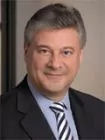In a widely anticipated action, the United States Supreme Court on December 2, 2016, agreed to review the Federal Circuit's en banc decision in Impression Products, Inc. v. Lexmark International, Inc., which concerns the proper scope of the patent exhaustion doctrine. This doctrine, often referred to as the "first-sale doctrine," generally provides that an "initial authorized sale of a patented item terminates all patent rights to that item." Quanta Computer, Inc. v. LG Elecs, Inc., 553 U.S. 617, 625 (2008).
The Supreme Court will hear the Impression case in its current Term, in order to decide two questions presented by the case: (i) whether the sale of a patented product that specifies post-sale restrictions on the product's use or resale is permitted under the patent exhaustion doctrine; and (ii) whether an international sale of a patented product can exhaust U.S. patent rights in that product. The Supreme Court's resolution of these questions may have significant implications for the communications, semiconductor, and medical device industries, among others.
The Impression case involves printer toner cartridges. When purchasers buy replacement cartridges from Lexmark, they are offered two choices—a "Regular Cartridge" sold at full price without any use limitations, or a "Return Program" cartridge sold at a discount in exchange for the purchaser's agreement to use the cartridge only once. The cartridges are otherwise identical. Under the Return Program, customers agree that they will return the empty cartridge only to Lexmark for remanufacturing or recycling. Customers who buy regular cartridges, on the other hand, pay full price but are not subject to the single-use restriction. They may dispose of—or refill—the cartridge as they see fit. The Return Program cartridges cost about 20 percent less than the unrestricted version.
In the proceedings below, the Federal Circuit sua sponte issued an order directing that an en banc court decide the case in the first instance. In the en banc decision, Judge Taranto, writing for a majority of 10 judges, explained that the patent law permitted Lexmark to place such post-sale restrictions on their patented cartridges at the time of the sale: "A sale made under a clearly communicated, otherwise-lawful restriction as to post-sale use or resale does not confer on the buyer and a subsequent purchaser the 'authority' to engage in the use or resale that the restriction precludes." The majority reasoned that a patentee "already may preserve its patent rights against downstream buyers (with notice) through otherwise-lawful restrictions, by licensing others to make and sell its patented articles. We conclude that the law does not forbid the patentee to do the same when making and selling the articles itself."
The majority also affirmed the Federal Circuit's prior decisions that patent exhaustion "cannot rest on a foreign first sale" but is instead triggered only by a first sale occurring within the United States. The majority concluded that "there is no legal rule that U.S. rights are waived, either conclusively or presumptively, simply by virtue of a foreign sale, either made or authorized by a U.S. patentee."
To reach that determination, the majority distinguished the recent decision in Kirtsaeng v. John Wiley & Sons, Inc., 133 S. Ct. 1351 (2013), where the Supreme Court interpreted the Copyright Act's codification of the first-sale doctrine as "mak[ing] no geographical distinctions" such that the doctrine applies to copies of copyrighted works lawfully made abroad. The Impression majority reasoned that Kirtsaeng was limited to a "statutory question" specific to the Copyright Act, and "considerations supporting its textual conclusion cannot be transposed to the patent-law setting." In doing so, the majority stressed that unlike the Copyright Act's codified first-sale doctrine, the "Patent Act does not contain a congressionally prescribed exhaustion rule, let alone a provision that makes the express definition of infringement ... subservient to any congressionally expressed exhaustion rule."
The dissent, authored by Judge Dyk and joined by Judge Hughes, disagreed with the majority on both points. In the dissent's view, the majority's holding on post-sale restrictions and foreign inapplicability "cannot be reconciled with the Supreme Court's recent decisions" in Quanta and Kirtsaeng.
With respect to the issue of international exhaustion, the Impression case bears strong parallels to SCA Hygiene Products AB v. First Quality Baby Products LLC, another patent case where the Supreme Court recently heard oral argument to address whether laches is a viable defense to patent infringement. In SCA Hygiene, a sharply divided en banc Federal Circuit concluded that the laches defense applies to patent cases despite the Supreme Court's earlier decision in Petrella v. Metro-Goldwyn-Mayer Inc., which held that laches is not a defense to copyright-infringement claims that are brought within the Copyright Act's three-year statutory period for filing such claims.
Similar to the Federal Circuit's Impression decision, the Federal Circuit's SCA Hygiene decision distinguished Petrella as resting on statutory provisions in the Copyright Act that are absent from the Patent Act and inapplicable in the patent context. Accordingly, the Supreme Court's upcoming decision SCA Hygiene may foreshadow the possible outcome in the Impression case.
The content of this article is intended to provide a general guide to the subject matter. Specialist advice should be sought about your specific circumstances.




